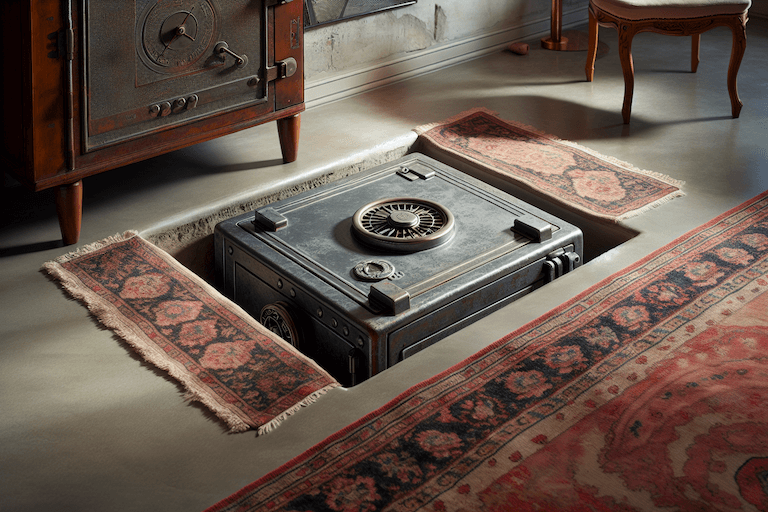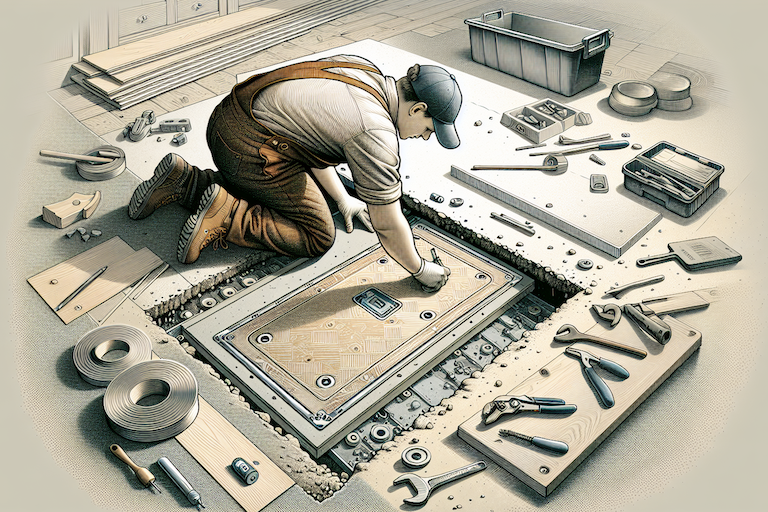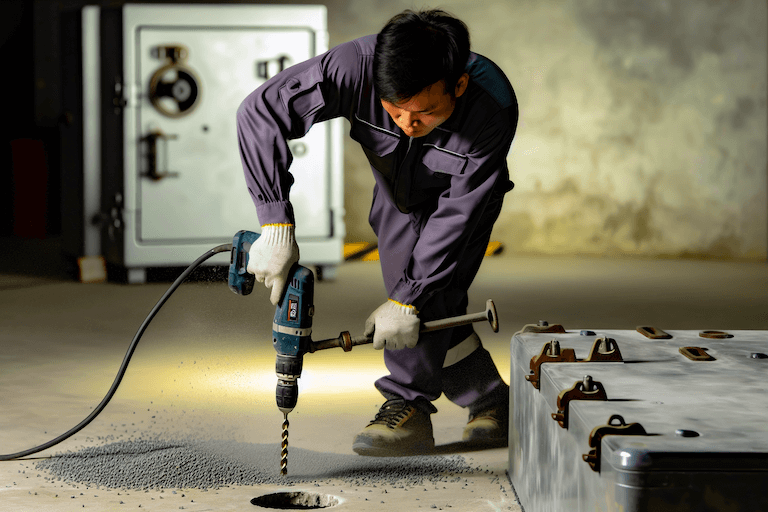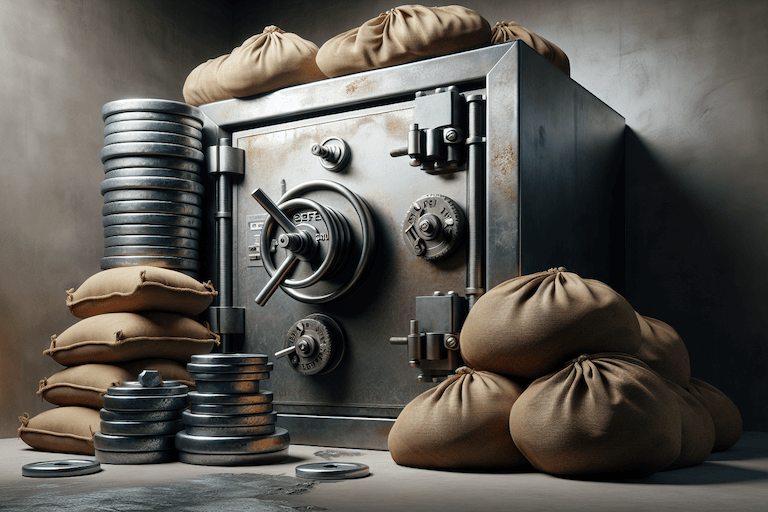
What Are Floor Safes and How Do They Work?
Floor safes have long been a popular choice for safeguarding valuable possessions and important documents. These safes, as their name suggests, are installed directly into the floor, providing an added layer of security and discretion.
This comprehensive guide aims to explore the inner workings of floor safes, shed light on their advantages, and address common misconceptions.
Whether you are considering installing a floor safe or simply curious about how they operate, this article will provide you with the knowledge you need.
How Do Floor Safes Work?
Floor safes are designed to provide maximum security by utilizing a combination of sturdy construction and strategic placement. They are typically made from heavy-duty materials such as solid steel, ensuring durability and resistance against drilling, prying, or even fire.
The installation process involves cutting and removing a section of the floor, creating a cavity where the safe is then securely anchored. This concealed placement makes it extremely difficult for intruders to discover or access the safe, providing an additional layer of protection.
The locking mechanisms of floor safes are engineered to be highly secure. The most common type of lock used in floor safes is the combination lock, which requires the correct sequence of numbers to open.
Some advanced models may also feature digital or biometric locks, adding an extra level of convenience and security. Additionally, some floor safes often have re-locking systems that activate when tampering is detected, further preventing unauthorized access.
Advantages of Floor Safes
Floor safes offer several advantages that make them an appealing choice for individuals and businesses alike. Here are some key benefits:
1. Enhanced Security: The concealed placement of floor safes makes them exceptionally secure. Their solid construction and advanced locking mechanisms provide reliable protection against theft and unauthorized access.
2. Discreet and Space-Saving: Unlike freestanding safes, floor safes are hidden from view, making them less likely to attract attention. Their installation in the floor also saves valuable space, as they do not occupy any additional room above the ground.
3. Fire Protection: Some floor safes are fireproof, offering peace of mind in the event of a fire. These safes can safeguard important documents, valuable possessions, and sentimental items, ensuring they remain intact and protected.
4. Customizable Options: Floor safes come in various sizes and configurations, allowing for customization based on individual needs. Some models offer adjustable shelving or compartments to accommodate different types of items.
Considerations Before Installing a Floor Safe
Before installing a safe in the floor, there are several important factors to consider:
1. Location: Choose a location for the safe that is easily accessible to you, but not easily discoverable by others. Consider factors such as proximity to walls or furniture that may conceal the safe further.
2. Size and Capacity: Assess your storage needs and select a floor safe that offers sufficient capacity. It should provide enough room for your valuable items without compromising on security or discretion.
3. Installation: Floor safe installation generally requires professional expertise. Engage a reputable locksmith or safe installation specialist to ensure proper installation and security.
4. Insurance: Consult with your insurance company to determine if a floor safe will affect your coverage. Some insurers may offer reduced premiums for homes or businesses with proper security measures in place.
Maintenance and Care for Floor Safes
To ensure the longevity and optimal functionality of your floor safe, regular maintenance and care are essential. Here are some tips:
Cleaning: Periodically clean the exterior of the safe using a soft cloth and mild detergent. Avoid using abrasive cleaners or solvents that may damage the safe's finish.
Lubrication: Apply a small amount of lubricant to the safe's hinges, bolts, and lock mechanism to ensure smooth operation. Be sure to use a lubricant recommended by the safe manufacturer.
Inspection: Regularly inspect the safe for any signs of damage or wear. Check the locking mechanism, hinges, and door seals for any abnormalities. If you notice any issues, contact a professional to assess and repair the safe promptly.
Combination Change: Change the combination periodically to enhance security. Follow the manufacturer's instructions to ensure a smooth and accurate combination change.
Common Misconceptions About Floor Safes
Despite their numerous benefits, floor safes are not without misconceptions. Let's address some common myths:
Easy to Discover: Some believe that floor safes are easily discovered by professional burglars. While no safe is entirely undiscoverable, if done right, floor safes are exceptionally difficult to locate due to their concealed placement.
Inconvenient to Access: While you will need to crouch down, accessing a floor safe does not require strenuous effort. With the proper installation and placement, floor safes can be conveniently accessed.
Limited Capacity: Although floor safes may appear compact, they are available in various sizes and capacities. This ensures that you can find a floor safe to accommodate your specific storage needs.
Vulnerable to Water Damage: Many floor safes are designed to be resistant to water damage. They have seals and gaskets to prevent water from entering the safe, ensuring the contents remain dry and protected.
Floor Safes vs. Other Types of Safes
When considering the purchase of a safe, it's important to compare the different options available. Here are some key differences between floor safes and other types of safes:
Floor Safes vs. Wall Safes: While both provide discreet placement, floor safes offer greater protection against theft as they are more secure and can store heavier items. Wall safes, on the other hand, may provide quicker access and are suitable for smaller items.
Floor Safes vs. Home Safes: Freestanding home safes are typically smaller and portable, designed to protect valuable items within a residence. Floor safes, however, offer enhanced security due to their concealed placement and concrete installation.
Related: How to Secure a Safe Without Bolting it to the Floor
Conclusion
Floor safes offer unrivaled security and peace of mind for individuals and businesses alike. Their concealed placement, sturdy construction, and advanced locking mechanisms make them a formidable defense against theft and unauthorized access.
By understanding how floor safes work and the advantages they offer, you can make an informed decision when it comes to selecting the right safe for your needs.
Remember to consider factors such as location, size, and installation before making your purchase, and follow recommended maintenance practices to ensure the longevity of your safe. With a floor safe in place, you can rest assured that your valuable possessions and important documents are well-protected.




